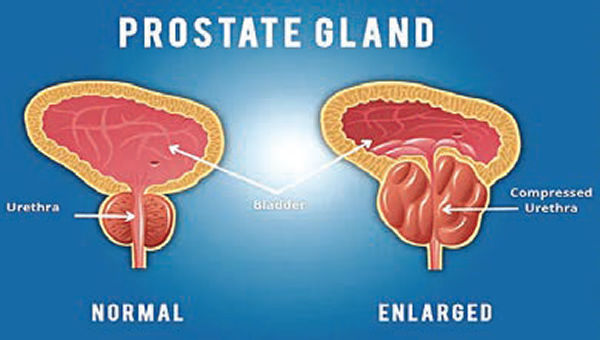
A Public Health Physician, Dr. Festus Adetonwa says painful ejaculation during intercourse is a red flag that calls for concern, as it might be a sign of prostate cancer.
He said such development should not be taken for granted and advised men going through such an experience to seek urgent medical attention from a qualified doctor.
He explained that prostate is a walnut-sized gland that is part of the male reproductive system, adding that it is located below the urinary bladder and in front of the rectum.
Dr. Adetonwa, who is the Head, Occupational Health and Safety Unit, Ogun State Ministry of Health, disclosed this during an occupational health and safety workshop held for staff of PUNCH Nigeria Limited, and organised by the Industrial Training Fund, Abeokuta Area Office.
The physician said prostate cancer is 100 per cent treatable if detected early, adding that it is the most common cancer found in men.
He, however, said the burden of prostate cancer was high in Nigeria because many people present late to the hospital.
According to him, prostate cancer is currently the most common cancer and the most common cause of cancer death in men in Nigeria.
Dr. Adetonwa also pointed out that prostate cancer has the potential to grow and spread quickly, but that for most men, it is a relatively slow-growing disease.
He said,” Symptoms of prostate cancer can be blood in the urine (Hematuria), painful ejaculation, pain in the lower back, hips or upper thighs.
“Other symptoms can be a dull pain in the lower pelvic area, frequent urination, trouble urinating, pain, burning, or weak urine flow.
“Others are loss of appetite, loss of weight and bone pain. In its early stages, prostate cancer often has no symptoms.”
He urged men having any of the above-listed symptoms to see a doctor for a health check.
The physician identified smoking, being overweight, lack of exercise, diet and environmental exposures as some of the modifiable risk factors for prostate cancer, while listing age, ethnicity and family history as non-modifiable risk factors.
According to research, a black man is 70 per cent more likely to develop prostate cancer than a white man and is nearly 2.3 times more likely to die from the disease.
Advising men to go for regular health screening, the physician said, “As men increase in age, the risk of developing prostate cancer increases. It is also hereditary. If a relative has a history of prostate cancer then there is twice the likelihood to develop the disease.
“This is why it is advisable for men age 40 and above, to begin early screening for detection of the disease. Screening for the disease may include Prostate Specific Antigen, PSA and other tests,” he advised.
The Centres for Disease Control and Prevention says different people have different symptoms of prostate cancer.
According to the CDC, some men do not have symptoms at all when they have prostate cancer, while others have symptoms such as difficulty to start urination, weak or interrupted flow of urine, and urinating often, especially at night.
Others the US health agency noted are having trouble emptying the bladder, adding that some men might experience pain or burning during urination.
Meanwhile, it has been noted that every hour, one man dies from prostate cancer – that’s more than 10,000 every year.
Over 40,000 men are diagnosed with prostate cancer yearly – which is more than 100 men diagnosed daily.
And it is also estimated that by 2030, prostate cancer will be the most common cancer, with one in eight men getting the ailment.
Meanwhile on what can be done to prevent prostate enlargement, which can later become cancerous, the President, Academy of Medicine Specialties and Secretary-General of the International Federation of Fertility Societies, Prof. Oladapo Ashiru, in an earlier publication with PUNCH Healthwise, said early diagnosis by rectal examination at the doctor’s clinic helps detect prostate enlargement.
He said, “A sensitive test for early detection of prostate enlargement is the level of a substance called Prostate Specific Antigen (PSA) which can indicate an overactive prostate. High PSA levels suggest prostrate problems. It is recommended that one should have a medical examination annually to rule out prostate enlargement.
“Men are advised to take multivitamins containing extra Zinc and Vitamins C, D, and E, which are rich in antioxidants. A clinical trial dose of 150mg of Zinc daily for two months and subsequent 50-150mg per day has recorded a 74% success in treating abnormal enlargement of the prostate.
“A diet rich in lycopene found in tomatoes prevents various chronic diseases, including cancers of the lungs and prostate. Other non-prescription alternatives for benign prostrate enlargements are the mineral Saw Palmetto, a handful of pumpkin seeds chewed once a week, drinking plenty of water, and eating a diet high in fiber.”
• To continue reading this story, go to: https://healthwise.punchng.com/





